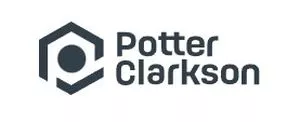Judge Brinkman at the Unified Patents Court ("UPC") has recently handed down a decision on the patentability of a mushroom strain and provided interesting jurisprudence on interim injunctions, delays, and "genetic identity".
BACKGROUND
Amycel LLC ("Amycel") is US-headquartered company that owns a European Patent EP 1 993 350 B2 for 'Brown mushrooms for commercial production' (the "Patent"). The Patent is in force in the following UPC Contracting Member States: The Netherlands, Germany, France and Italy. It is also valid in other, non-UPC, countries, including Poland.
CLAIM
On 14 May 2024, Amycel filed an application for provisional measures before the UPC against the Defendant (subject to redaction) – a Polish mushroom producer. Broadly speaking, Amycel alleged that the Defendant was infringing the Patent by placing on the market, and/or using and/or importing and/or storing the hybrid Agaricus bisporus mushroom strain BR06, in particular, the Defendant's "Cayene" mushroom strain. Amycel's application was for:
- An injunction to stop the defendant from infringing the Patent by selling a brown mushroom strain in the Netherlands, Germany, France and Italy;
- An order for delivery up of infringing products;
- Disclosure of the names and addresses of all customers that purchased the allegedly infringing products from the defendant;
- Payment of Amycel's costs;
- A daily penalty award of € 50,000.00 for each day (or part day) for which the injunction is not complied with, and €5,000 per day (or part day) for which the disclosure order was not complied with.
Amycel had conducted a trap purchase from the Defendant and provided evidence that it had requested analysis of the Cayene strain against its own Heirloom mushroom strain conducted by NakTuinbouw (a Dutch autonomous public body) who provided a report confirming that, in its assessment, the Cayene and Heirloom strains provided were genetically identical. The additional expert reports provided by Amycel on genetic similarity and phenotypical characteristics both confirmed these findings.
DEFENCE
Importantly, the Defendant had not filed a protective letter which may have provided further protection against Amycel's application for injunctive relief, and therefore the Defendant was provided with the opportunity to reply to the Application, which was submitted on 26 June 2024, including invalidity arguments in relation to the Patent.
The Defendant, as part of its reply, submitted a translated expert report comparing Amycel's strain and the Cayene strain, using an ITS analysis and an analysis of SNPs and Indels in the whole genome. The report identified differences between the strains, which the Defendant argued proved that its Cayene strain did not infringe the Patent.
In seeking to defend against the injunction request within the Application, the Defendant also alleged a lack of urgency on the part of Amycel. It argued that Amycel waited an unreasonably long time to file the application, and that the reports which Amycel claimed caused the delay were not necessary for infringement arguments.
The Defendant raised arguments that a Hungarian strain (Barnakalapu BKU-100) from 1991 was identical to Heirloom, as was the SP-B1 strain, although the latter was only documented in 2006 (after the priority date of the Patent). The Defendant further sought to infer that the SP-B1 strain was prior art as it was identical to the BKU-100 strain.
The Defendant also sought to rely on the exclusion from patentability under Art. 53(b) EPC, arguing that the Patent was invalid as the strain was a form of "plant or animal varieties".
In respect of the injunction, the Defendant argued that EUR 200,000 security should be provided by Amycel. The court assumed that this amount reflected the expected loss to the Defendant pursuant to the award of an injunction in Amycel's favour.
STANDARD FOR INFRINGEMENT
The court was required to consider what "genetically identical" should mean for the purpose of assessing the claim scope of the Patent. The court was persuaded by Amycel, based on its expert evidence, that 100% identity was not appropriate, but instead, due to technical and biological reasons, "identity" would comprise anything upward of 99,88% (with a standard deviation of +/- 0,0235) identity across the genetic markers assessed. It was noted that even identical clones could differ by a few hundred genetic variations due to transcription errors.
DECISION
The court rejected each of the Defendant's arguments in turn and made the following key determinations:
- The Cayene strain infringed the Patent as it was, subject to the determination of the standard of "genetically identical" mentioned above, genetically identical to the strain claimed in the Patent;
- Amycel had not unreasonably delayed starting the proceedings1 and found that Amycel's attempts to settle the matter and obtain appropriate evidence of infringement did not constitute negligent or hesitant behaviour;
- The Defendant had not adequately substantiated any of its invalidity arguments and no evidence was provided as to the alleged genetic identity between the BKU-100 strain and Amycel's Heirloom strain;
- Art 53(b) EPC does not apply to mushroom varieties and therefore the Patent did not comprise excluded subject matter; and
- The Defendant's argument that its Cayene variety is genetically identical to the BKU-100 strain was not understood to be an attempted prior use defence, but even if it were, prior use is a territorial right and was not sufficiently substantiated in any event.
Accordingly the court granted Amycel the requested preliminary injunction in the requested territories given the ongoing infringement by the Defendant, ordered the Defendant to deliver up the infringing products, provide the list of customers and addresses to Amycel, and that the Defendant should make an interim payment of EUR 11,000 to cover the court fees in the proceedings, with other costs matters to be reserved to the trial on the merits of the case. The court also ordered the requested penalty payment provisions in respect of compliance with both the injunction and disclosure obligations.
Amycel was ordered to pay an amount of EUR 200,000 by way of security in respect of the injunction granted, which was equal to the amount requested by the Defendant. Given the court's understanding that the Defendant considered EUR 200,000 to represent the loss it would suffer from the enforcement of an injunction against it, the court set the value of this dispute at EUR 200,000. Arguments from the Defendant that the Polish case value was set at EUR 60,000 were ignored, as the national division was not considered competent to determine the value of a dispute as it applied to all relevant UPC member states covered by the Patent.
It is interesting that the arguments on Art 53(b) EPC were swiftly dismissed by the court, and it seems that the court will give leniency to claimants who take sensible (albeit long-running) steps to either try and settle the case or obtain suitable evidence of infringement before seeking an injunction. This is perhaps more flexible than one would expect in national courts such as the courts of England and Wales and suggests that the UPC remains a "claimant friendly" jurisdiction in that respect.
The Defendant may appeal this decision within 15 calendar days of the date of service of the court's order. It is yet to be seen if the Defendant proceeds to appeal.
Footnote
1 This is because "unreasonable delay in starting the proceedings, and consequently possible lack of temporal urgency required for the ordering of provisional measures, only exists if the Applicant has behaved in such a negligent and hesitant manner in requesting provisional measures after it became aware of the infringement of the patent that, from an objective perspective, it must be concluded that the Applicant is not interested in promptly enforcing its rights. In such case it is not appropriate to allow it to claim provisional legal protection" – para 24
The content of this article is intended to provide a general guide to the subject matter. Specialist advice should be sought about your specific circumstances.



